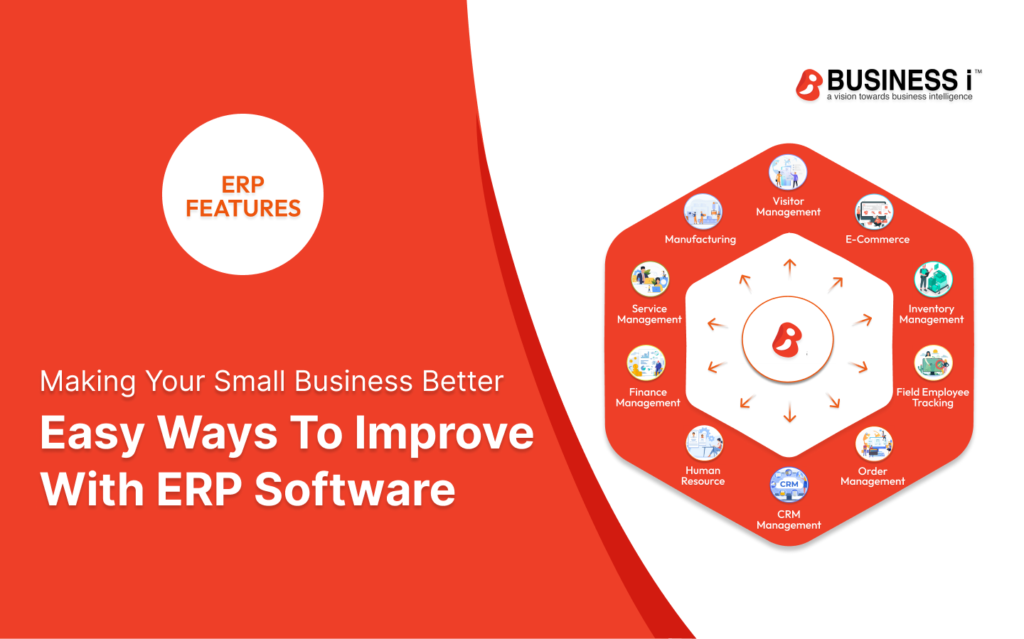Making Your Small Business Better: Easy Ways to Improve with ERP Software
Table of Contents
Introduction
Small businesses are the backbone of our economy, often operating with limited resources but great determination. In this blog, we’ll explore how small businesses can harness the power of ERP (Enterprise Resource Planning) software to streamline operations, cut costs, and set the stage for sustainable growth.
The Importance of ERP for Small Businesses
Doing More with Less
For small businesses, efficiency is key. ERP software allows them to do more with less by automating repetitive tasks, reducing manual errors, and improving overall productivity.
In a world where every penny counts, small businesses can benefit from the cost-saving features of ERP. By centralizing data and processes, businesses can eliminate redundancies and allocate resources more effectively.
As small businesses grow, so do their operational complexities. ERP systems are designed to scale, allowing businesses to expand without the headache of overhauling their entire operations.
Choosing the Right ERP for Your Small Business
Figuring Out What You Need
Before diving into ERP options, small business owners need to identify their specific needs. What processes need streamlining? What functionalities are crucial for day-to-day operations?
Cloud vs. On-Premise: Which Is Better?
Small businesses often operate on lean IT budgets. Cloud-based ERP solutions offer flexibility and accessibility without the need for substantial upfront investments in infrastructure.
One size doesn’t fit all. Small businesses should look for ERP solutions that are customizable to fit their unique processes and requirements.
Making ERP Work for Your Small Business
Planning and Getting Ready
Implementing ERP requires careful planning. Small businesses should develop a step-by-step implementation plan, considering potential challenges and creating a roadmap for a smooth transition.
For ERP to be effective, the team needs to be on board. Investing in training programs ensures that employees are comfortable using the new system, maximizing its benefits.
Integration is key. Small businesses should ensure that the chosen ERP system seamlessly integrates with existing tools and platforms to avoid disruptions in workflow.
Dealing with Hiccups in ERP Adoption
Watching Your Wallet
Budget constraints are a common concern for small businesses. Opting for scalable ERP solutions allows businesses to start small and expand functionalities as they grow.
Change can be challenging. Communicating the positive impact of ERP on daily operations and providing support during the transition can help alleviate concerns among the team.
Security is paramount. Small businesses should prioritize ERP solutions with robust security features to safeguard sensitive data and maintain the trust of customers.

Success Stories of Small Businesses with ERP
Stories That Inspire
Explore real-life success stories of small businesses that have achieved significant growth and efficiency through strategic ERP implementation.
What Small Business Owners Say
Hear directly from small business owners who have experienced the positive impact of ERP on their day-to-day operations. Their testimonials offer valuable insights for others considering ERP adoption.
The Future of ERP for Small Businesses
Getting Smarter with AI
The future of ERP is getting smarter with the integration of artificial intelligence (AI) and machine learning. Small businesses can stay ahead by exploring these advancements.
Doing Business Anywhere with Mobile ERP
Mobile ERP solutions offer small businesses the flexibility to manage operations on-the-go. This adaptability is crucial in today’s dynamic business landscape.
Look into industry-specific ERP solutions tailored to the unique needs of your business sector. These specialized solutions can provide a more precise and effective implementation.
conclusion
In conclusion, the integration of ERP software is a game-changer for small businesses. It empowers them to streamline operations, cut costs, and position themselves for sustained growth.
As technology continues to evolve, small businesses can leverage ERP to stay competitive and future-proof their operations. Embracing ERP is not just an investment in software; it’s an


